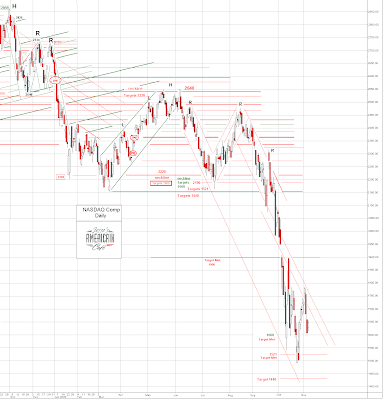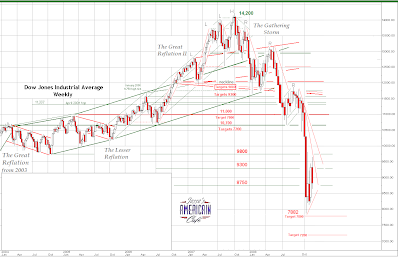November 11, 2008
American Express to Be Bank Holding Company
By THE ASSOCIATED PRESS
WASHINGTON — The Federal Reserve on Monday granted a request by the credit card giant, American Express, to become a bank holding company, giving it access to low-cost financing from the Fed.
The Fed said it had approved the application for American Express and a related company, American Express Travel Related Services, to become bank holding companies.
The approval represented the latest reshaping of the financial services industry, which is undergoing its worst credit crisis in decades.
In announcing the action, the Fed cited “emergency conditions.”
The Fed’s approval for American Express was similar to the decision it made in September to transform the country’s two biggest investment banks, Goldman Sachs Group and Morgan Stanley, into bank holding companies.
That move bolstered the two institutions after the collapse of another investment bank Lehman Brothers, which became the largest bankruptcy filing in history. Goldman and Morgan Stanley gained the ability to borrow federal money and build a stable base of deposits in hopes of reassuring investors and other banks.
AmEx last month reported that its profit fell 24 percent in the third quarter as cardholders restrained their spending and had more trouble paying off debt.
10 November 2008
AMEX: We Are All Banks Now
Meredith Whitney on the Banks
11-5-08 Meredith Whitney Interview on CNBC with Maria Bartiromo (video)
(Thanks to Mr. Mortgage for the transcript below)
Maria: What changes with an Obama Presidency for the banks?
Whitney: Financials and the economy are so far off the tracks its hard to see anything helping right now. One thing they talked about was mortgage modifications - trying to get money to consumer.
None of this makes banks have a higher appetite for risk so you don’t see a lot of money coming into system aside from govt subsidies. So the banks will make less if they modify your loan. They will be siting on sludgier assets. That doesn’t create new capital to get back into the system.
Higher taxes are assoc with Dem’s but there it less to tax…one good thing about all of this.
Maria: You were the first to point out the upset in financial industry - please tell us where we are in cycle?
Whitney: We are in a new part of cycle. We have digested the fact that the securitization is not coming back. Securitization made up 85% of mortgages and 50% of credit cards. Market is not coming back. Contraction of capital is one thing. But what happens going forward is contraction of the overall mortgage market - this has never happened before.
Banks are not lending. Originations are down big in Q3. Loan balances getting smaller. Credit cards make up over $2 trillion in available credit lines being pulled out of system. Credit is being taken away form those that got credit in the past 15 years. Never in America had we seen this before. This is a more destructive market for consumer. This is not factored into market.
An economy that has already been impacted by market and unemployment going to double digit levels is another wild card for banks.
Banks just will not make a lot of money and the street is still expecting them to make a lot more money. My estimates are 30-70% below the street and i think I am too high.
Maria: 70% below the street - oh my. Its going to be tough to make those up - the street still expects them to make lot?
Whitney: Banks asset base gets smaller so revenue gets smaller. They can’t cut costs fast enough to keep up with declining revenue. Credit costs increase and you are running faster to collect on loans. So you just have a protracted period of negative operating leverage.
Many of the banks, especially the two brokers, expense structure grew so fast over the past several years that their expense structure is built for a 06-07 revenue environment and their revenue will be like 01-02 revenue environment.
Maria: How much of this is priced in how much will this be a surprise? stocks are down so significantly.
Whitney: Citi, UBS, Wells Fargo, JP Morgan and BofA at all these levels est are coming down dramatically. Nobody is immune. Believe it or not, analysts think losses will be more milder than they really will be.
One difference between my estimates and the rest of the street has been a higher loss curve estimates for losses than others. But my loss estimates are actually lower than the reported numbers. I think we are in for a rude awakening. That may result in a slow grind down in these stocks.(When the financials bottom, the stock markets will be at a bottom and not before. We have much further to go. This is going to look like the post 1930 grind down to a bottom, at about 70-80% of the peak in real terms. Expect 10 to 20% kickback rallies every few months. The wild card is how successfully the Fed and Treasury can create inflation to mask it. - Jesse)
I don’t think you will see massive capital destruction like we saw with huge write downs but I will bet a lot of money banks will come back for a lot more money on the next 9-months again so you will be diluted further. Now, from Obama you will see more regulation. They are a highly regulated utility with less dividend. You should expect Citi and others to cut dividend.
Citi already cut but nobody is allowed to raise under TARP. But earns will be so much lower alot of companies will not be able to support dividends so yes they will cut again.
Maria: How significant of a fall will be see in these stocks?
Whitney: I think Citi goes to the single digits. (Good bellwether - Jesse)
Maria: Who is best position and will go higher?
Whitney: There are many I like and I hope they can hold onto being independent, but stock prices are far too high.
I think you know JPM and BAC survives. There are alot of attractive companies.
Wells Fargo at $20 is attractive. They have a $20 billion offering in the works and that stock is still hovering near $30! That stock still has a ways down to go. (We were thinking more like 10 - Jesse)
Wells Fargo is gonna be a great company and will be a survivor but consensus estimates are on Pluto. They will have a (equity) supply jam in terms of extra capital into the market and you will see a great chance to buy a great stock you want and at much lower prices. (If we hit a bottom we would rather have commodity companies like oil and mining with good cash flows to support high yields - Jesse)
09 November 2008
Myron Scholes Takes Another Hedge Fund to the Brink
Bloomberg
Scholes's Platinum Grove Fund Halts Withdrawals After Losses
By Saijel Kishan
Nov. 6 (Bloomberg) -- Platinum Grove Asset Management LP, the hedge-fund firm co-founded by Nobel laureate Myron Scholes, temporarily stopped investor withdrawals from its biggest fund after it lost 29 percent in the first half of October.
The decline left Platinum Grove Contingent Master fund with a 38 percent loss this year through Oct. 15, according to investors. Funds employing a similar approach of exploiting differences in the value of related securities fell 14 percent last month and 30 percent this year, according to data compiled by Chicago-based Hedge Fund Research Inc.
``The suspension is necessary given current market conditions,'' Rye Brook, New York-based Platinum Grove said in an e-mailed statement today. ``Platinum Grove will use this period to consult with its investors and counterparties, determine their future intentions and manage the assets of the fund accordingly.''
Hedge funds are reeling from the worst financial crisis since the Great Depression, losing an average of 20 percent this year, according to Hedge Fund Research. A surge of investor redemptions forced firms such as Blue Mountain Capital Management LLC and Deephaven Capital Management LLC to freeze funds to stem the tide of withdrawals.
Scholes, 67, winner of the 1997 Nobel Prize in economics, was a founding partner in Long-Term Capital Management LP, the hedge fund that lost $4 billion a decade ago after a debt default by Russia. He started Platinum Grove in 1999 with Chi-fu Huang, Ayman Hindy, Tong-sheng Sun, and Lawrence Ng, who had all worked at Long-Term Capital...


































